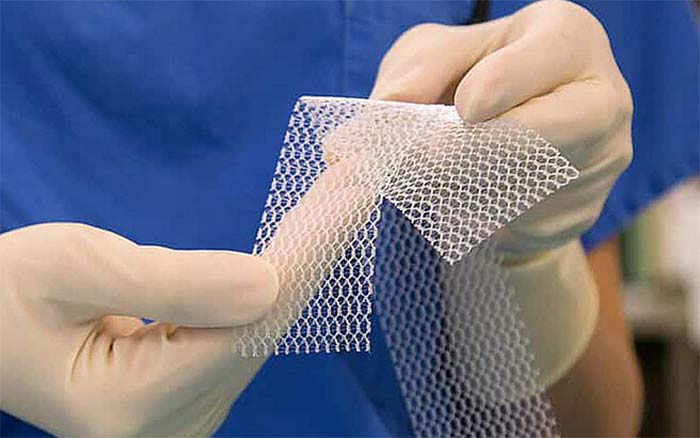 UNSAFE? The FDA today halted the sale of the remaining transvaginal mesh products for pelvic organ prolapse repair.
UNSAFE? The FDA today halted the sale of the remaining transvaginal mesh products for pelvic organ prolapse repair. The U.S. Food and Drug Administration today ordered the immediate removal of surgical mesh products used for transvaginal repair of pelvic organ prolapse (POP), a procedure that has been linked to numerous mesh-related adverse events, including pelvic pain and organ perforation.
The order — which applies to the 2 remaining suppliers of vaginal mesh, Boston Scientific (the Uphold LITE Vaginal Support System and the Xenform Soft Tissue Repair System) and Coloplast (Restorelle DirectFix Anterior) — is the latest in a series of escalating safety actions related to protecting the health of the thousands of women each year who undergo surgery transvaginally to repair POP, says the FDA.
The FDA said the companies "have not demonstrated a reasonable assurance of safety for these devices" or that they're more effective than mesh-free POP repair. The companies have 10 days to submit their plans to withdraw the products, made of synthetic or biological material, from the market.
It's estimated that half of U.S. women will suffer from POP during their lives. Over the past several years, the FDA has seen a significant increase in the number of reported adverse events associated with the use of surgical mesh for transvaginal POP repair.
As part of the FDA's 2016 reclassification of vaginal mesh as a class III (high risk) device, manufacturers were required to submit and obtain approval of premarket approval (PMA) applications in order to continue marketing their devices.
"In order for these mesh devices to stay on the market, we determined that we needed evidence that they worked better than surgery without the use of mesh to repair POP. That evidence was lacking in these premarket applications, and we couldn't assure women that these devices were safe and effective long term," said Jeffrey Shuren, MD, director of the FDA's Center for Devices and Radiological Health. "Patient safety is our highest priority, and women must have access to safe medical devices that provide relief from symptoms and better management of their medical conditions. The FDA has committed to taking forceful new actions to enhance device safety and encourage innovations that lead to safer medical devices, so that patients have access to safe and effective medical devices and the information they need to make informed decisions about their care."
.svg?sfvrsn=be606e78_3)
.svg?sfvrsn=56b2f850_5)